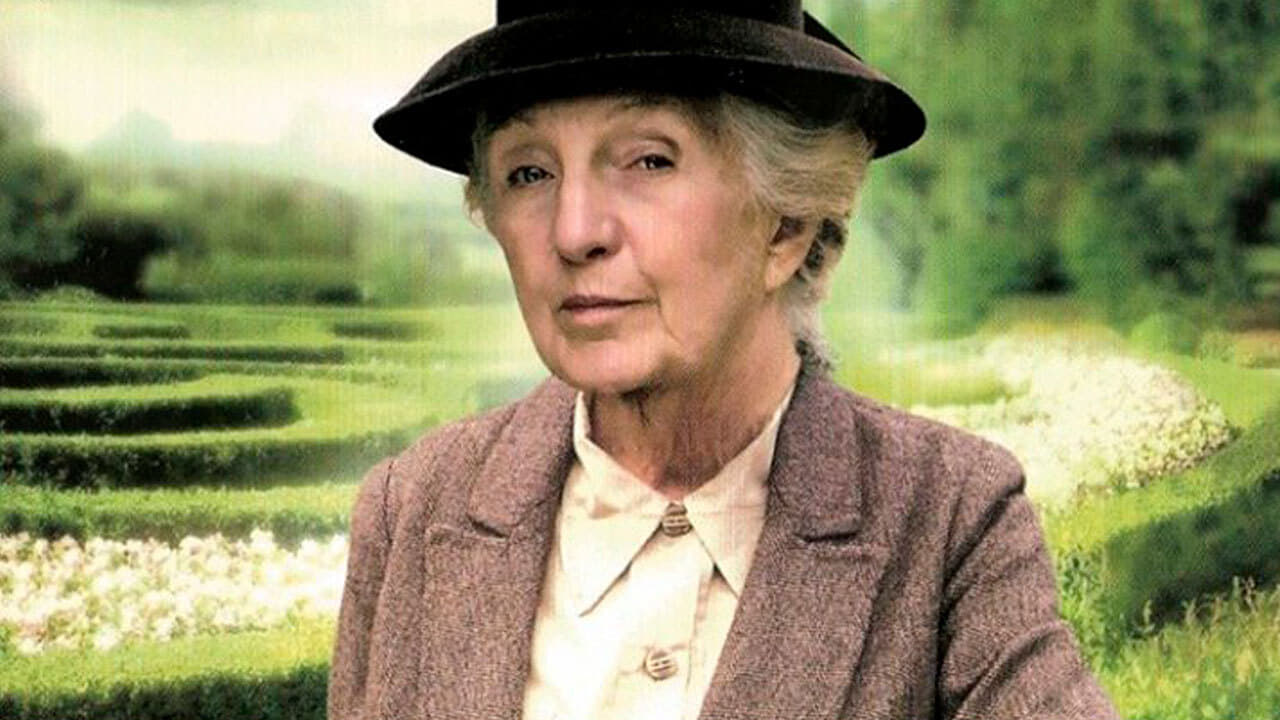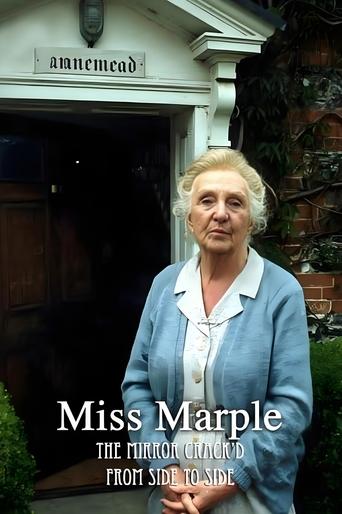johnniedoo
Hard to pin down the year of this episode from autos. Many anachronistic models spanning more than one decade-more like 2decades. Did not spoil the episode for me as they were great to see and so many super clean, no dust or rain spots. I loved them all. 2018 now so all were vintage today.
sissoed
Hickson's Miss Marple has always struck me as very authentic, and this adaptation captures the tone and feel of the book very well, cutting-out some of the complexities (Marina Gregg's first husband, events concerning the butler) that burdened the book with unhelpful and implausible complexities. But one key observation in the book, about the flaw in Heather Badcock's nature that led to her death, made this book my favorite Christie, and it ought not to have been cut. In Miss Marple's first meeting with her, Badcock's conversation causes Miss Marple to recognize a similarity between Badcock and an old acquaintance of Miss Marple, Alison Wilde. At the end of the book, Miss Marple explains (SPOILER coming): 'Quite so,' said Miss Marple, '(Marina Gregg) never knew (who gave her the German Measles that crippled her baby) until one afternoon here when a perfectly strange woman came up those stairs and told her the fact - told her, what was more - with a great deal of pleasure! With an air of being proud of what she'd done! She thought she'd been resourceful and brave and shown a lot of spirit in getting up from her bed, covering her face with make-up, and going along to meet the actress on whom she had such a crush and obtaining her autograph. It's a thing she has boasted of all through her life. Heather Badcock meant no harm. She never did mean harm but there is no doubt that people like Heather Badcock (and like my old friend Alison Wilde), are capable of doing a lot of harm because they lack not kindness, they have kindness - but any real consideration for the way their actions may affect other people. She thought always of what an action meant to her, never sparing a thought to what it might mean to somebody else.'The whole book thus is driven not by greed for money, or lust, or fear of exposure, or blackmail -- the typical drivers of murder mysteries -- but by the devastating effects of self- centered thoughtlessness by a person who never meant anyone any harm. It is a book with a moral message: that it is incumbent on all of us not merely to be free of any overt desire to do harm to another person, but to take thought as to how our plans and proposed actions may nevertheless hurt others. This aspect of The Mirror Cracked raises it above all the other Christie novels that I've read (and I've by no means read all that many) by giving it a subtlety that others do not have. It is a shame that Miss Marple does not say in this adaptation the lines she says in the book that make this theme clear. As a mystery, the adaptation has a fundamental flaw: in reality, the police would have focused on Marina Gregg's drink, from the moment she gave it to Heather all the way back to the waitress's tray and to the bar before that, examining in detail everyone who was near it, and the police would almost certainly have ascertained within an hour or two after the party that only Marina could have poisoned it. Who could have not only gotten access to the drug, but known it was poisonous, and gotten it into Marina's own glass? Members of the household might know about the drug and might have gotten a dose in advance, but when might they get access to the glass during the party and yet escape detection? Outsiders would not know about the drug. Moreover, the police would certainly have questioned the waitress and cleared-up the bit about who jogged Badcock's arm. This adaptation thus depends entirely on the trick of making us not notice the fact that the police have failed to do what any police department would have done immediately. What makes Christie's technique particularly clever is that she gives us a police detective (Craddock) who is so calm, thoughtful, and intelligent, and yet burdened with a nasty fault-finding boss who surely will spot any incompetence by Craddock, we naturally assume that the police, as we see them in the story, are doing as competent a job as any police force could do -- when in fact the police (Craddock especially) are quite incompetent. And the last touch, by the casting director, is to cast an actor whom most women viewers will find especially attractive, so that they are even more inclined to want to believe that he is doing everything that a competent police detective would do.
Iain-215
This was the last of the BBC Miss Marple adaptations to feature Joan Hickson in the title role. Hickson is still wonderful and her banter with the excellent Margaret Courtney as Miss Knight is some of the best stuff in the film. Courtney played Dolly Bantry in the big budget earlier version of this story (with Elizabeth Taylor, Kim Novak et al) but in this version Gwen Watford makes a very welcome return as Mrs Bantry. Indeed, the locals provide the most enjoyment in this adaptation and its nice to see some more old faces from 'Murder at the Vicarage' turn up.The incoming Americans are not so successful. Claire Bloom is really too harsh and hard-bitten as Marina Gregg and Elizabeth Garvie isn't anything like as sympathetic in the role of Ella as Geraldine Chaplin in the earlier film. Far from perfect though the earlier film is, I couldn't help comparing certain roles and finding the later version wanting. David Horovitch rolls out his world weary, cynical Slack once again but it was nice to have John Castle back as Craddock (why was he Miss Marple's nephew this time?).On balance, despite the liberties taken with the source material, I think I preferred the earlier big budget version of this story. Hickson and the other locals however are well worth watching.
creusekitchen
I think on seeing the 1981 Hollywood version and the 1992 version I do feel that being 'British myself that it is much better to keep to the authors way of telling the story as this is Agatha Christies way and that is why she is so popular. As for Joan Hickson playing the part of miss Marple I feel she is perfect and that Agatha Christie was right in her choice and of course she must be right. As to the plots they are meant to be intriguing and complicated not to be made easy to work out .

